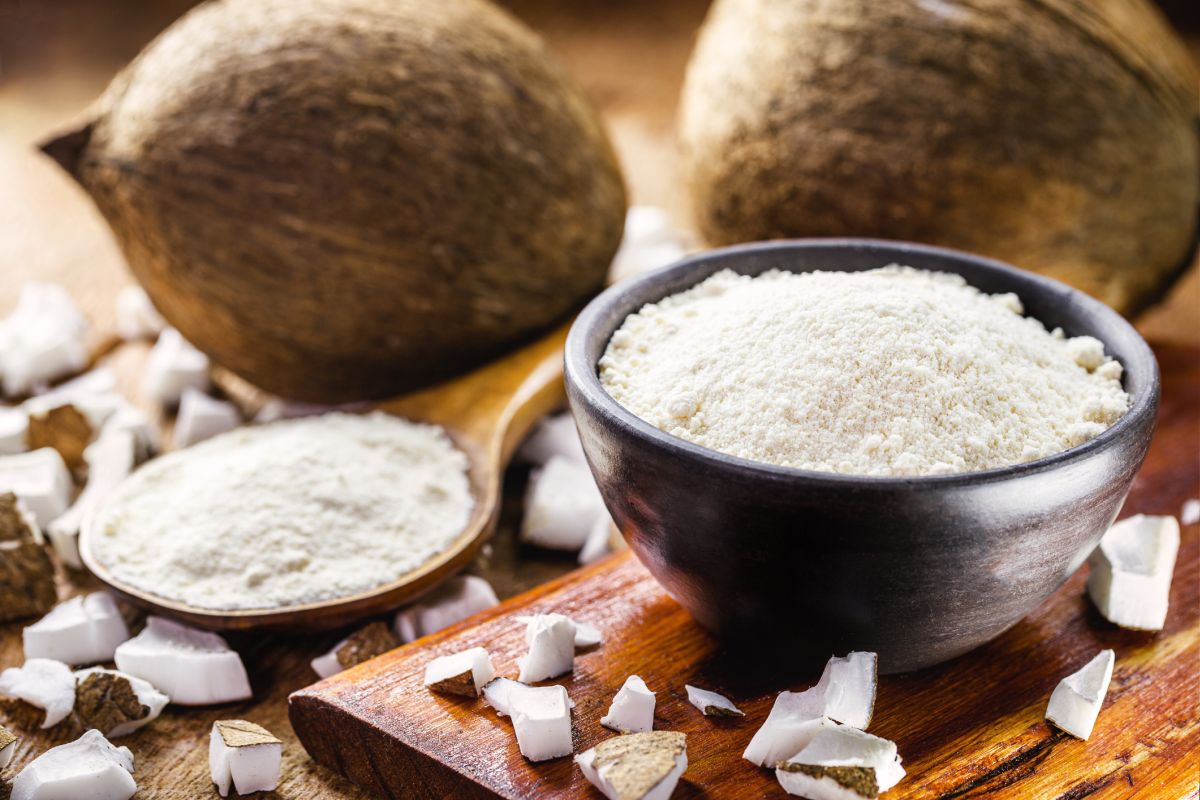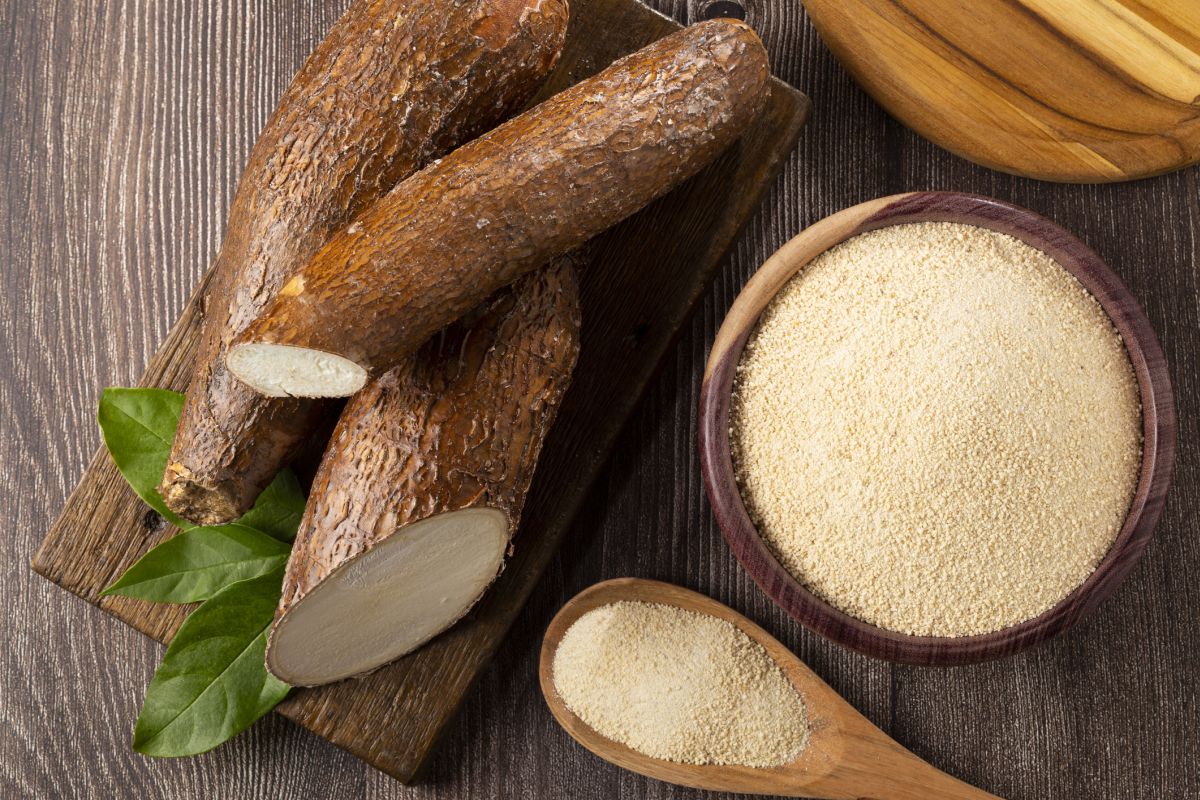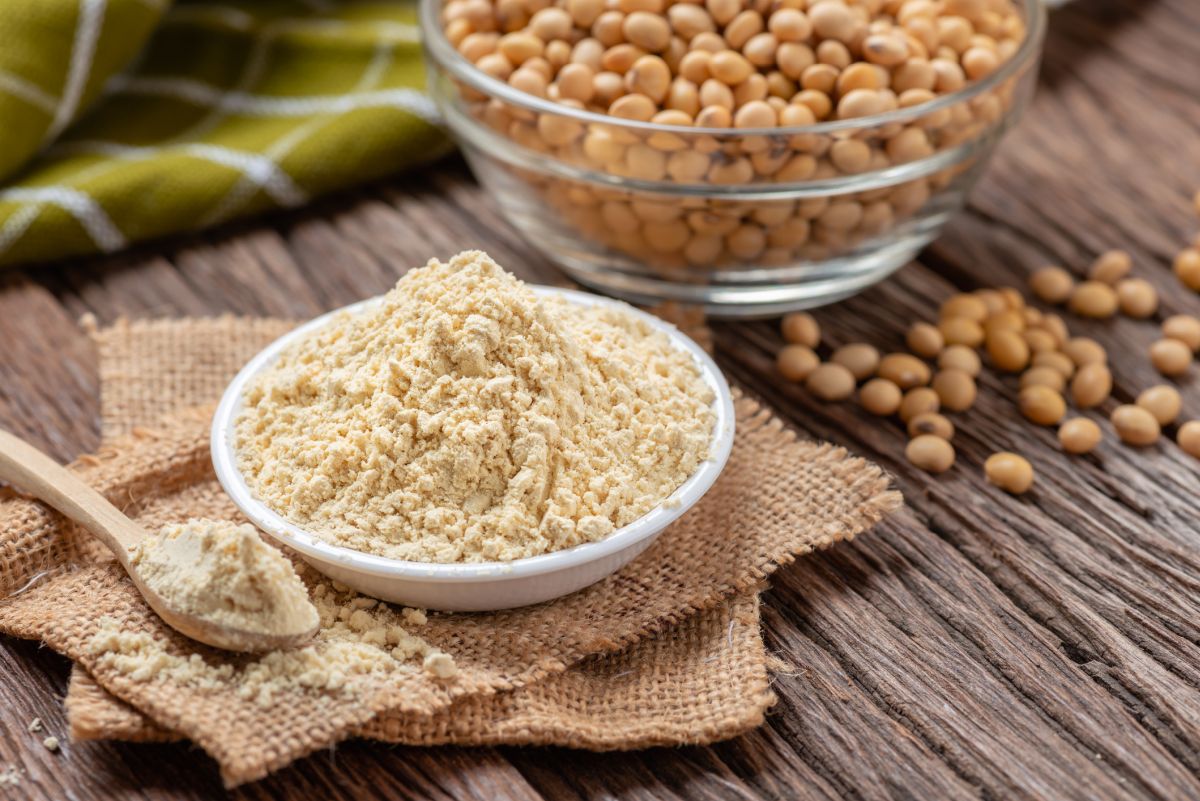A good coconut flour substitute is not difficult to come by, whether you need it to be gluten-free, grain-free, or simply because you have run out.

What Is Coconut Flour?
Coconut flour is made from dried, finely ground coconut meat. It is similar to coconut flakes, only ground finer. Flour made from coconut is naturally gluten-free and ideal for baking or cooking.
Common Uses for Coconut Flour
- Replaces wheat flour in baking and cooking
- Added to smoothies for nutrition and texture
- Thicken sauces, gravies, and stews
- Used to crumb coat items for frying
Difference Between Coconut Flour and Coconut Powder
The difference between coconut flour and coconut powder is in their composition. Coconut flour has been finely grounded with all fats and liquid removed from the coconut meat. On the other hand, coconut powder is made from dehydrating coconut milk and still contains the fats and sugars in the coconuts.
Coconut milk is lower in fats than coconut powder and is, therefore, better suited for baking.
11 Best Coconut Flour Substitutes
1. Almond Flour
Made from ground almonds, this flour is a popular substitute for coconut flour due to its similar texture and mild flavor. It is slightly denser and has a slightly nuttier taste. Masterclass explains the difference.
2. Arrowroot Flour
This flour is made from the root of the arrowroot plant and is a good option for those with nut allergies. It has a neutral flavor and a light, powdery texture that makes it a good alternative to coconut flour. Healthline gives you nutritional information and a brief overview of the flour.
3. Cassava Flour
Made from the root of the cassava plant, this flour is a great substitute for flour made from coconut because it has a similar texture and neutral flavor. It is also gluten-free and grain-free, making it a good option for those with dietary restrictions. Healthline gives you an overview of the flour.
4. Oat Flour
Oat flour has a lighter texture compared to coconut flour and is a good option for those looking for a milder-tasting substitute. This flour is made from ground oats and has a slightly nutty flavor. You can make it easily at home if you follow Minimalist Baker’s recipe.
5. Rice Flour
Made from ground rice, this flour has a light and airy texture that makes it a good alternative to using flour made from coconut. It has a neutral flavor and is gluten-free, making it a good option for those with dietary restrictions. There are a few options for rice flour. Better Home & Gardens shows you which is best to use for different applications.
6. Buckwheat Flour
Buckwheat flour has a nutty and earthy flavor. It is denser than coconut flour and has a slightly coarser texture, making it a good substitute for recipes that requires denser flour. Food52 explains exactly how to use this flour for different recipe types.
7. Chickpea Flour
Made from ground chickpeas, this high-protein, gluten-free flour is commonly used in savory dishes like falafel, fritters, and flatbreads but can also be found in other flour ‘blends’ to use in sweet dishes. The Spruce Eats gives you a complete overview.
8. Quinoa flour
You might not easily find this flour in stores, but you can easily make your own following Masterclass instructions. It is a high-protein flour that is gluten-free and can be used on its own to make recipes or blended with other flour.
9. Soy Flour
Delighted Cooking explains how to use soy flour, as it is a high-protein and gluten-free flour that you can find easily in health food stores. It can add a distinct taste to your dishes, and it tends to brown more quickly than other flours, especially when making baked goods.
10. Sorghum Flour
Made from ground sorghum, this flour has a mild and slightly sweet flavor. It is a good substitute for coconut flour in recipes that require a lighter texture and neutral flavor. The Spruce Eats explains how to use it.
11. Tapioca Flour
Made from the starchy root of the cassava plant, this flour has a neutral flavor and a light, powdery texture. It is ideal to use in recipes like pizza bases, according to Bob’s Red Mill.
12. All Purpose Flour
If you don’t have any dietary restrictions, using all-purpose wheat flour will work just as well as gluten-free flour or coconut flour. Plant Based FAQs give you a comparison between the two flours.
Tips for Coconut Flour Substitution
- Thickening agent – most substitutions can be successfully used as a thickening agent. However, you will need to experiment with the amount used.
- Adjust liquids – since flour made from coconut is very absorbent, you might need to use less of the substitute in your recipe or add more liquids to ensure you don’t have a runny or crumbly end result.
- Texture – be careful using an alternative with a different texture because the result of your recipe will be slightly different as well.
- Taste – some substitutions have neutral tastes, which might be ideal if you don’t want any other flavors added to your dish. But this means you will not have a coconut taste in your dish either. You can add coconut milk or cream to your recipe if it allows for it to add some coconut flavor back into the dish.


Leave a Reply